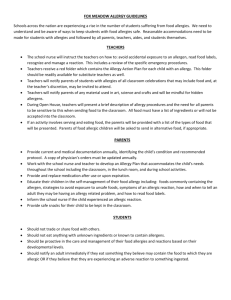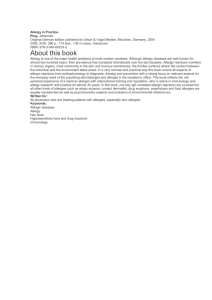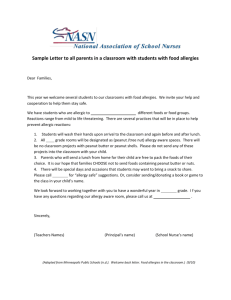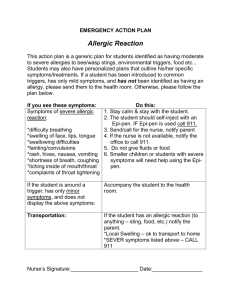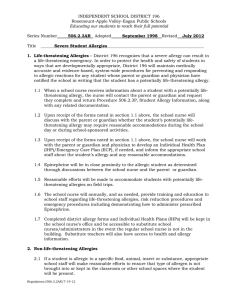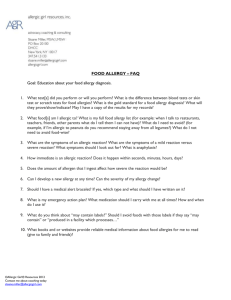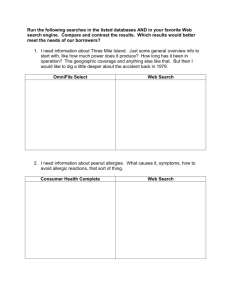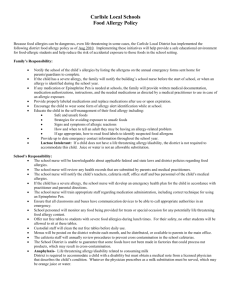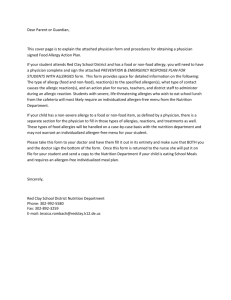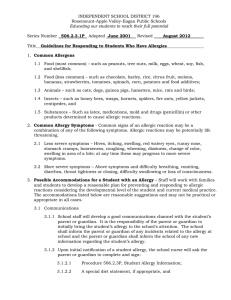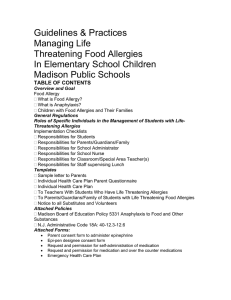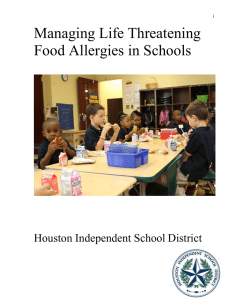CHESAPEAKE PUBLIC SCHOOLS
advertisement
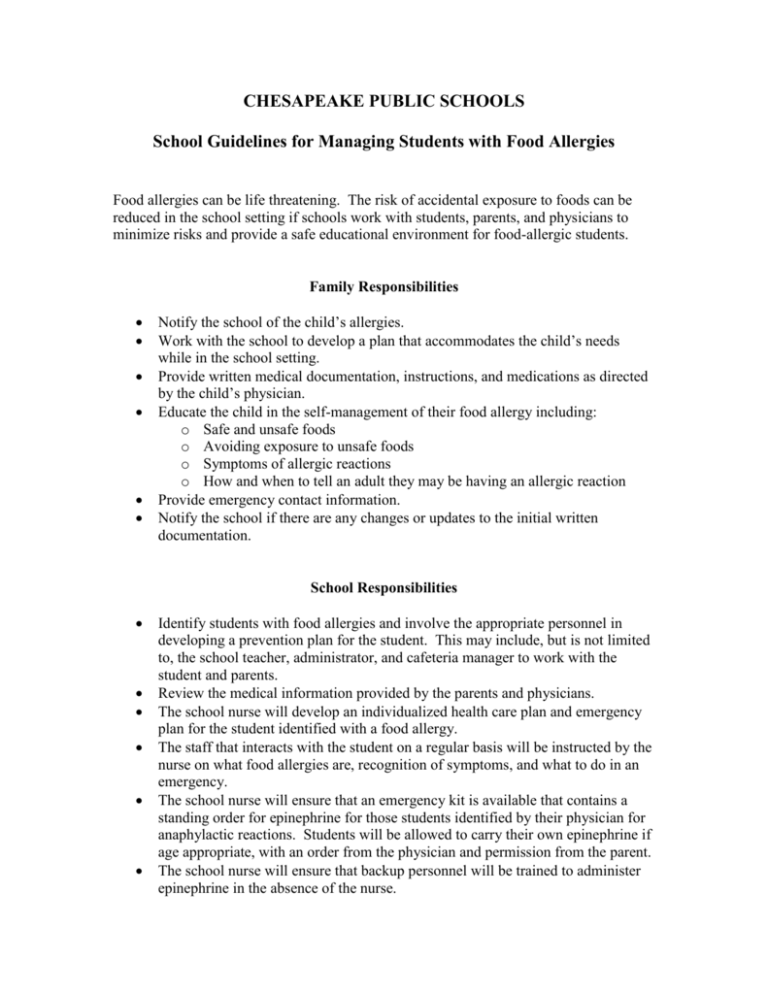
CHESAPEAKE PUBLIC SCHOOLS School Guidelines for Managing Students with Food Allergies Food allergies can be life threatening. The risk of accidental exposure to foods can be reduced in the school setting if schools work with students, parents, and physicians to minimize risks and provide a safe educational environment for food-allergic students. Family Responsibilities Notify the school of the child’s allergies. Work with the school to develop a plan that accommodates the child’s needs while in the school setting. Provide written medical documentation, instructions, and medications as directed by the child’s physician. Educate the child in the self-management of their food allergy including: o Safe and unsafe foods o Avoiding exposure to unsafe foods o Symptoms of allergic reactions o How and when to tell an adult they may be having an allergic reaction Provide emergency contact information. Notify the school if there are any changes or updates to the initial written documentation. School Responsibilities Identify students with food allergies and involve the appropriate personnel in developing a prevention plan for the student. This may include, but is not limited to, the school teacher, administrator, and cafeteria manager to work with the student and parents. Review the medical information provided by the parents and physicians. The school nurse will develop an individualized health care plan and emergency plan for the student identified with a food allergy. The staff that interacts with the student on a regular basis will be instructed by the nurse on what food allergies are, recognition of symptoms, and what to do in an emergency. The school nurse will ensure that an emergency kit is available that contains a standing order for epinephrine for those students identified by their physician for anaphylactic reactions. Students will be allowed to carry their own epinephrine if age appropriate, with an order from the physician and permission from the parent. The school nurse will ensure that backup personnel will be trained to administer epinephrine in the absence of the nurse. Discuss field trips with the parent of the food allergic child to decide appropriate strategies for managing the food allergy. The school nurse will provide education for classmates of a food allergic child as indicated. The School Nutrition Department will provide a listing of foods to avoid, ingredients label(s) and/or other nutritional information upon request. The Supervisor of Health Services and/or the School Nurse will communicate with the School Nutrition Services Department on an as needed basis regarding the management of the student’s allergy. Student Responsibilities Should not trade food with others. Should not eat anything with unknown ingredients or know to contain any allergen. Should be proactive in the care and management of their food allergies and based on their developmental level. Should notify an adult immediately if they eat something they believe may contain the food to which they are allergic For further information: www.foodallergy.org
